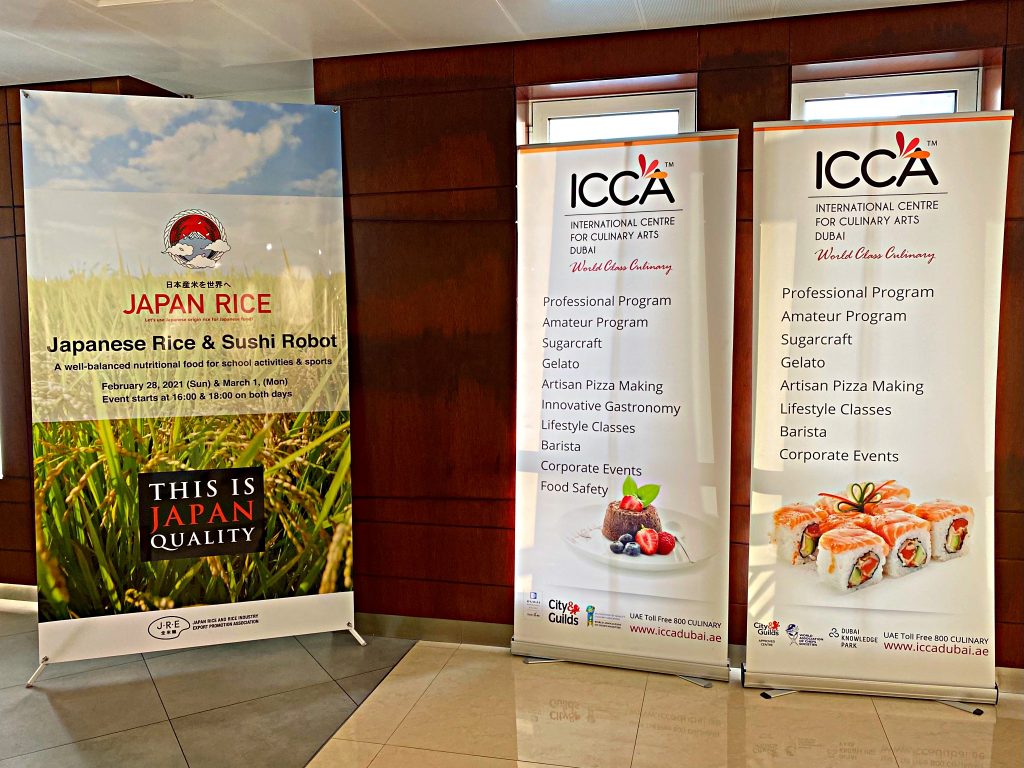
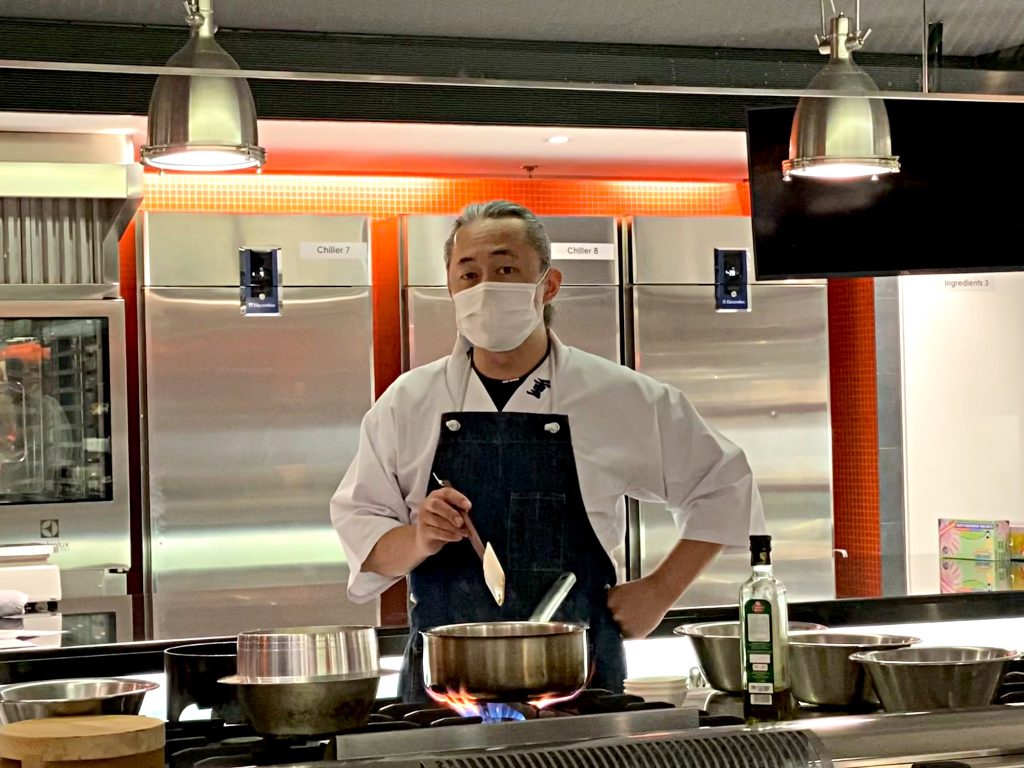
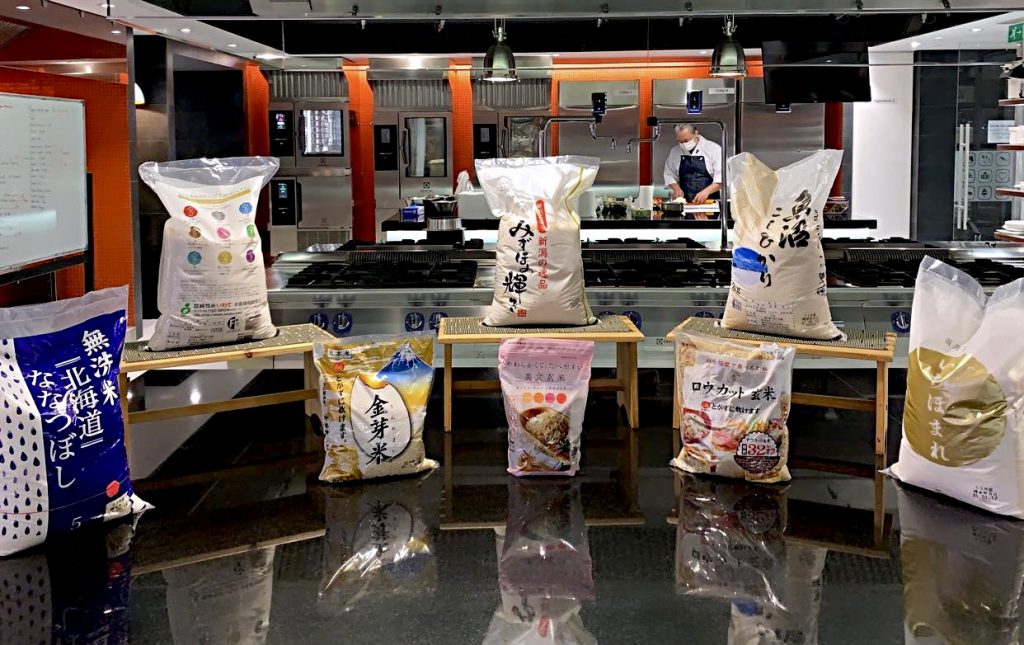
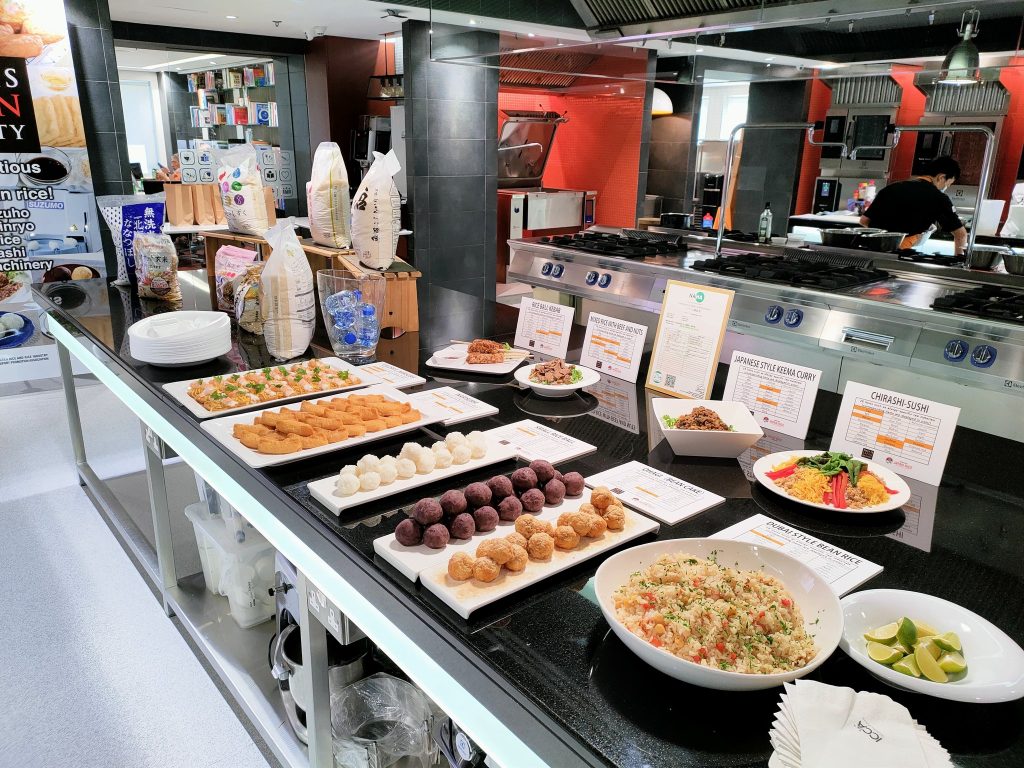
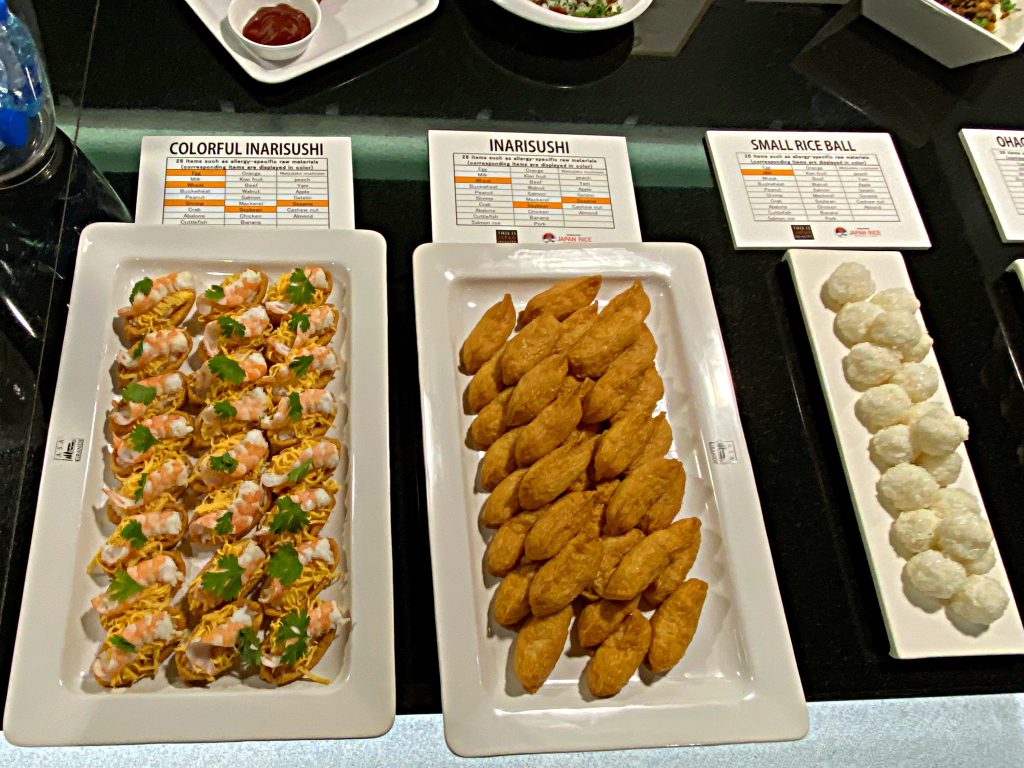





Carla Chahrour Dubai
The Japan Rice and Rice Industry Export Promotion Association (JRE) in partnership with the Japanese Ministry of Agriculture, Forestry and Fisheries conducted a rice workshop entitled “This is Japan Quality” on March. 2 at the International Centre for Culinary Arts (ICCA) in Dubai, United Arab Emirates, with the aim of increasing rice exports throughout the country.
Based in Tokyo, the Japan Rice and Rice Industry Export Promotion Association is committed to the promotion of trade in the export of agricultural products and foodstuffs, with a focus on domestically produced rice. Through working with rice wholesalers and food manufacturers in Japan, the association contributes to the establishment of cooperative frameworks towards joint development of export operations with the ultimate goal of expanding exports.
The workshop consisted of three sessions including an introductory lecture on the nutritious benefits of Japanese rice, a live rice cooking demonstration and a tasting session.
The first session involved a video-lecture on “Making the best use of Japanese rice in Sports Nutrition” by Rieko Kojima, a Japanese Sports Dietician and the founder of “plus N” an athlete nutrition support organization, where she discussed the characteristics of Japanese rice, the importance of food for athletes and how Japanese rice can be used for sports.
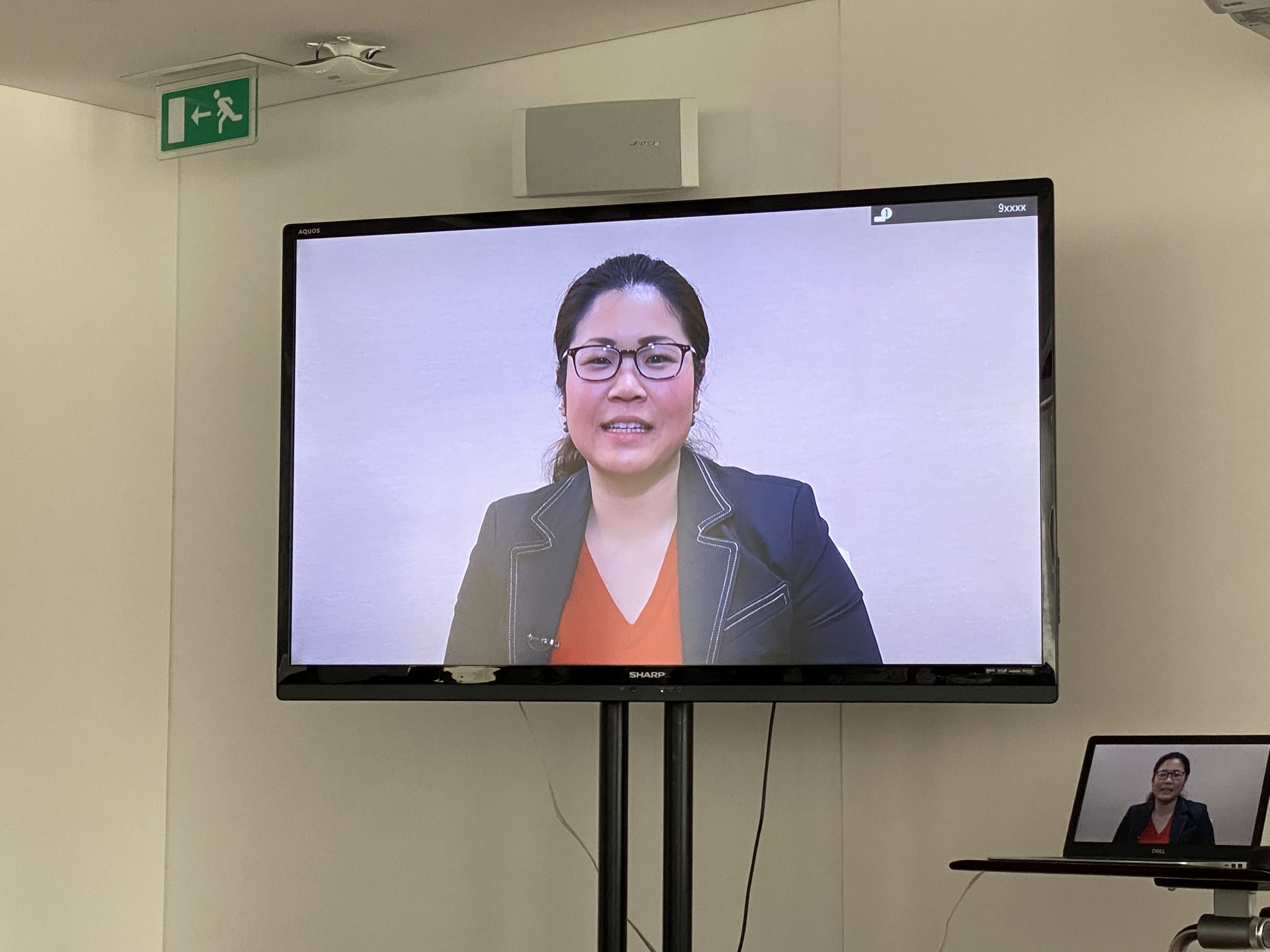 Japanese Sports Dietician Rieko Kojima giving a video-lecture about “Making the best use of Japanese rice in Sports Nutrition” at the Japanese rice workshop in ICCA, Dubai, UAE. (ANJP photo)
Japanese Sports Dietician Rieko Kojima giving a video-lecture about “Making the best use of Japanese rice in Sports Nutrition” at the Japanese rice workshop in ICCA, Dubai, UAE. (ANJP photo)According to Kojima, Japanese rice is considered a low-fat food, includes zero grams of salt, contains an efficient amount of carbohydrates (55.7g per cup) and an adequate amount of protein (3.8g per cup).
Outlining the nutritious features of Japanese rice aims to educate people on the multiple benefits provided within this specific type of cereal grain, while simultaneously highlighting the reason it forms a large component of the Japanese cuisine. In order to contextualize the discussion on sports nutrition and rice, Kojima presented several snacks that are eaten by athletes in Japan.
This included “Onigiri” which is a Japanese white-rice ball with fillings that is often wrapped with seaweed (or nori); the “Powerball” that is a rice ball that contains soupstock (Dashi); the “Inari Sushi” that is made with fried tofu made from soybeans and filled with sushi rice. The nutrition facts of each of the snacks were discussed to explain why they are commonly chosen by athletes as a health snack option.
Kojima pointed out the “synergistic effect of sushi rice and fried tofu” that is found in snacks such as “Inari Sushi” by saying that rice alone lacks the essential amino acid lysine, while fried tofu is rich in lysine. When combined, the two provide an adequate balance of essential amino acids, which is needed for vital functions within the human body.
The second session was hosted by Japanese Chef Tatsu, who provided a demonstration on how to cook and prepare Japanese rice.
The main steps that Chef Tatsu focused on was cleaning and soaking the rice.
The rice was first placed in a large bowl in order for it to be washed. Water was added until the rice was submerged, and then discarded within 13 seconds to prevent the rice from absorbing the water. This process was repeated until the water surrounding the rice was clear, which occurred after about three to four times.
While the rice was submerged in water, he gently washed the rice by moving his hand in a circular motion within the bowl. The water used for washing was then drained once the rice water was clear.
Chef Tatsu explained that “the purpose of washing the rice is to clean the external surface of the rice and remove the smell of the rice plant.”
“Rice, especially dry rice, absorbs water very quickly, so it is important that the first time the rice is washed with water it is removed quickly, to prevent the rice from soaking that water,” Chef Tatsu added.
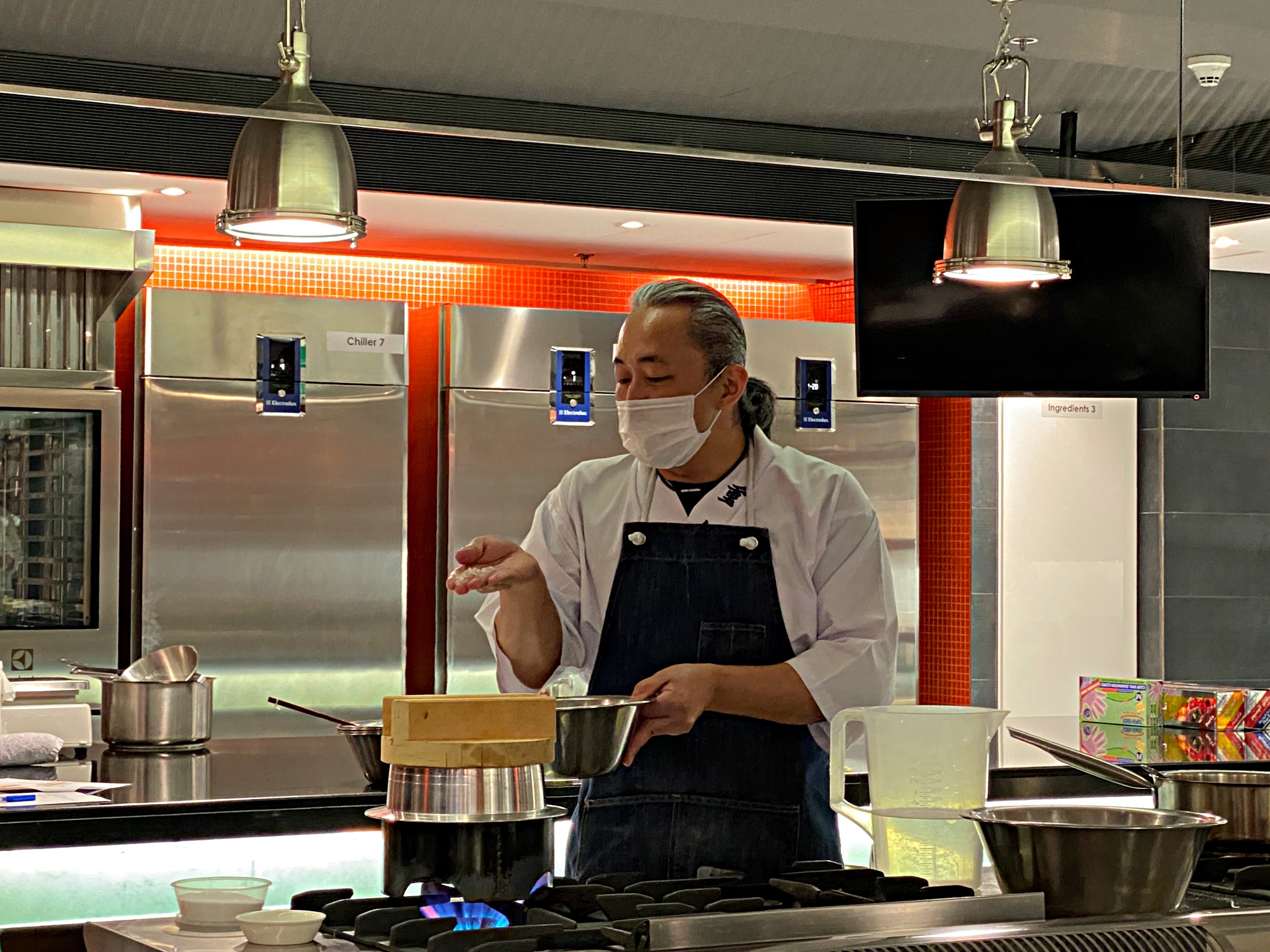 Japanese Chef Tatsu demonstrating how to prepare Japanese rice during the Japanese rice workshop at ICCA, Dubai, UAE. (ANJP photo)
Japanese Chef Tatsu demonstrating how to prepare Japanese rice during the Japanese rice workshop at ICCA, Dubai, UAE. (ANJP photo)The rice was then placed into an iron pot and after an equal amount of water was added, it was left to soak for 20-30 minutes before cooking. After that, the pot was covered with a tight lid and placed over high heat.
Once the water started to boil, the heat was turned down to low medium heat and cooked for a further 15 minutes to allow the water to absorb completely. The heat was then turned off and the rice was left to cook in the remaining steam inside the pot for around 10 minutes.
Once the rice was ready, Chef Tatsu demonstrated several recipes in a show of the different types of meals that can be created using Japanese rice.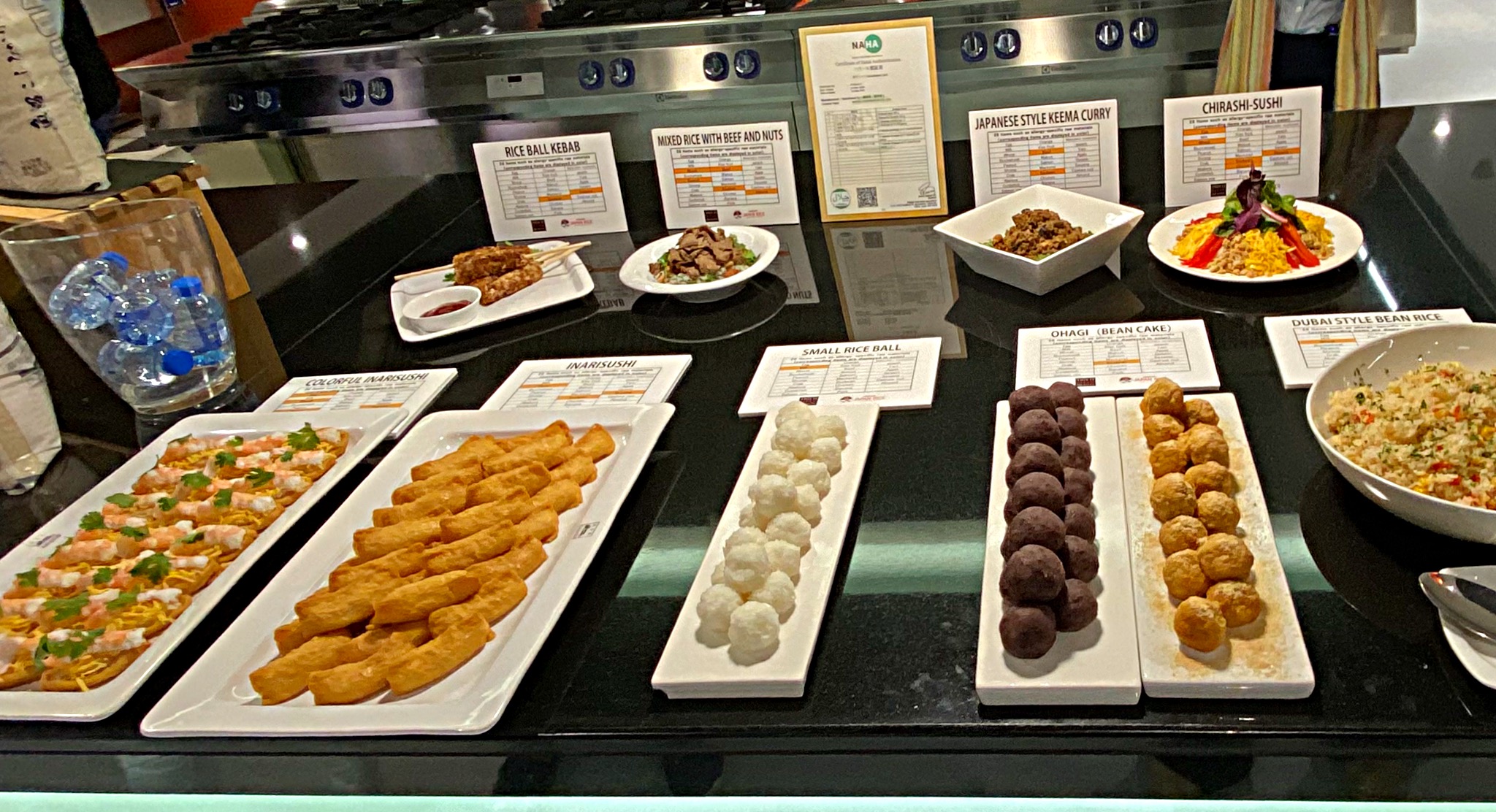
Foe the final session, Chef Tatsu presented multiple dishes that were made using Japanese rice as the main component. The dishes included mixed rice with beef and nuts, Chirashi-Sushi, Dubai-style Bean Rice, Rice Ball Kebab, Japanese style Keema Curry, Ohagi rice cake covered with sweet beans and Inari Sushi. The ingredients present within each dish were displayed and the cooking instructions for the dishes offered were provided to attendees to allow them to reciprocate the meals at home.
In a discussion with an event organizer working with JRE, Arab News Japan was told that “the Japanese government wants to expand the sale of Japanese rice to Dubai and we have to inform people of the quality of Japanese rice.”
According to the organizer, the first session of the workshop was conducted due to hearing about the prevalence of obesity and overweight people in different parts of the world. In attempt to contribute to solving this issue, the workshop held in the UAE linked Japanese rice to the concept of sport nutrition to show how a well-balanced diet can be maintained by using rice as the staple ingredient. However, in order to do so, the organizer added, JRE wanted to teach people how to properly cook the rice first, as well as provide sufficient information about Japanese rice and how it can help in controlling obesity in a “ simple but tasty and healthy” manner.
The purpose of the workshop was thus two-fold, on one hand, it educated people in the UAE about the nutritious benefits of Japanese rice and how it can be used to contribute towards the maintenance of a healthy diet. On the other hand, the workshop promoted Japanese rice through the introduction of dishes that can be made using the rice and familiarizing people in the UAE with Japanese distributors, in an aim to increase its sales through exporting the product into the country.